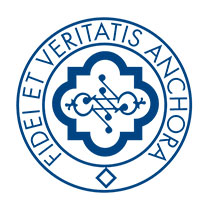Subject of the reform. What is it?
This proposal would introduce into our legal system succession renunciation agreements (already present in some European countries such as Germany, Switzerland and France) whereby it would be possible for a person to reject in advance the rights due to him by way of a succession that is not yet in probate (or rights to assets that will be part of the inheritance) and, as a logical consequence, the ability of forced heirs to give up their rights during the life of the donor.
Currently such agreements, better known as succession agreements, are considered null and void ab initio, as having been made in violation of the rule that an inheritance is transmitted by law and will.
There are three different types of agreements that are not allowed in our system:
a)institutive succession agreements, whereby the testator arranges his own succession while still alive;
b)testamentary succession agreements, whereby a person has inheritance rights arising from a succession that is not yet in probate;
c)succession rejection agreements, negotiated between living persons, whereby an individual renounces the rights that will arise from a future estate.
Today it is also forbidden to give up the right, as long as the donor or testator lives, to request a reduction of donations and bequests harmful to forced heirs.
This is the reason why, with the legislation in force, the sale of a property that has been donated presents some very critical aspects, because donations may be contested until 10 years have elapsed since the death of the donor or 20 years since the donation. Thus the current rules involve significant restrictions on the saleability of property received by gift, both because the person who received a property as a donation cannot provide adequate guarantees to the buyer, and because banks are reluctant to grant loans by way of a mortgage over such assets.
Through the introduction of succession renunciation agreements which would, among other things, give forced heirs the ability to renounce their rights during the life of the donor, the restrictions on the saleability of property received by donation would be eliminated.
The subject of the renunciation agreement concerns only a specifically determined right as to the asset and its composition. The renunciation, therefore, cannot relate to assets and liabilities of uncertain composition or an “inheritance” in general. This arrangement is intended to forestall the risk of waivers made with insufficient deliberation.
Only an heir may agree to renounce, i.e. the person destined to become heir by law and/or a “necessary” heir to the deceased. The waiver may be made only by an adult.
The renunciation agreement may be formalised by a unilateral deed (as in French law) or by a bilateral contract (as in the Swiss Code) with the participation of the testator and possibly some consideration in exchange for the renunciation. This means the agreement may be either free of for consideration.
The form of a public deed in the presence of witnesses is considered necessary so as to mark the solemnity of the act and its consequences.
For the purposes of official recognition of the contract and the unilateral act of waiver, the proposal foresees registration at the local Agency of the Provincial Office for Real Estate Services and entry of the renunciation agreement in an appropriate section to be set up within the General Registry of Wills.
Purpose of the proposal. What are the benefits?
Thanks to succession renunciation agreements, forced heirs could waive their rights of inheritance even during the life of the testator. This would ensure smoother and safer conveyances and legal transactions in general, allowing for legal planning in accordance with the will of the entire family with benefits both in economic terms and in the serenity of family relationships.






